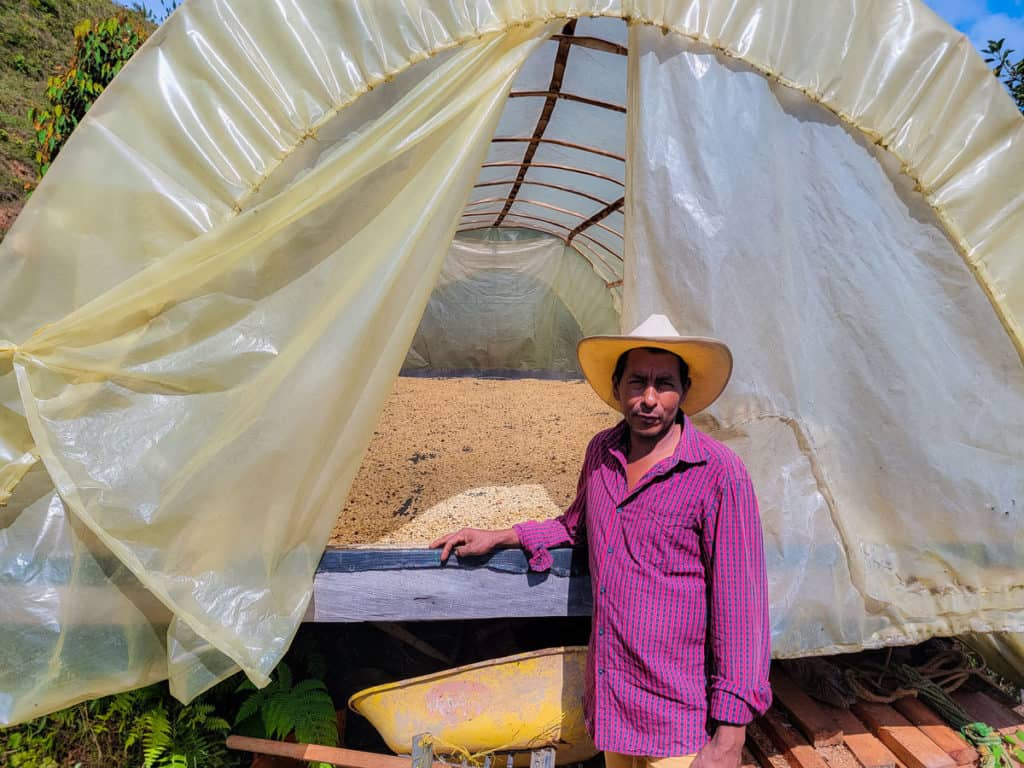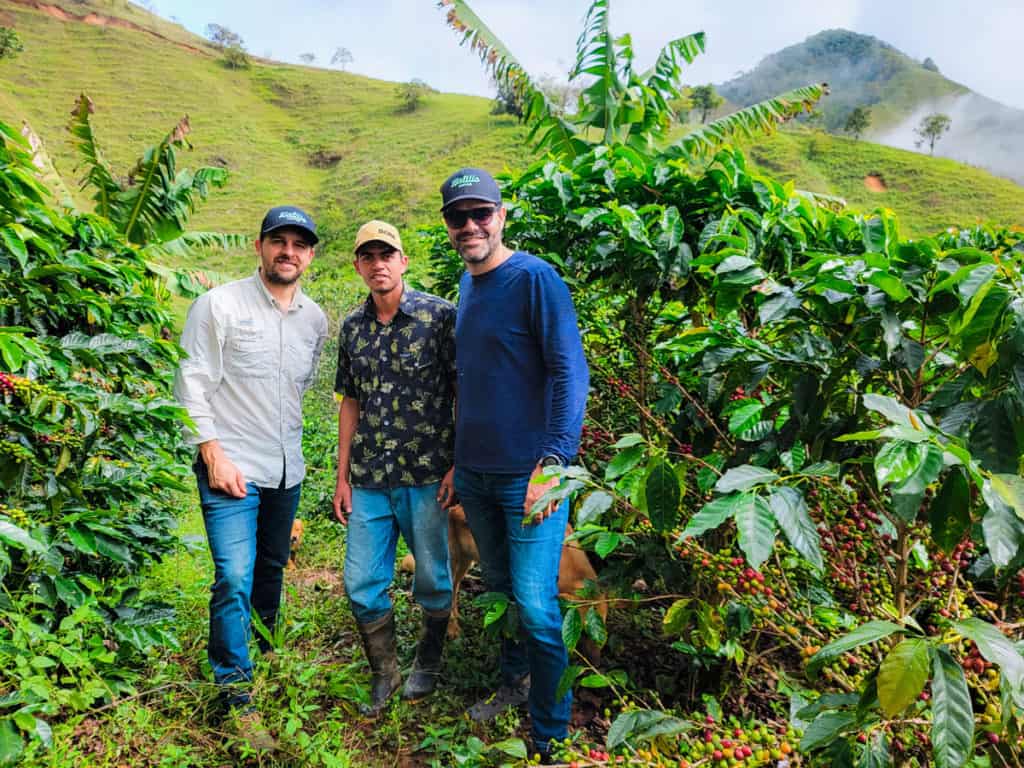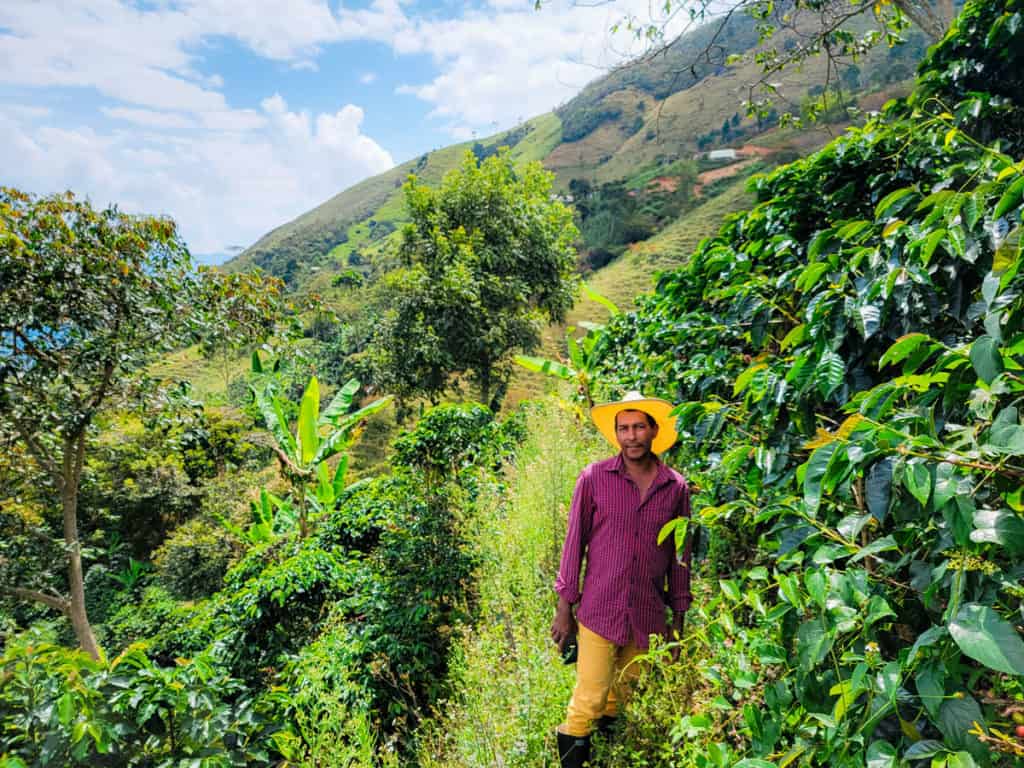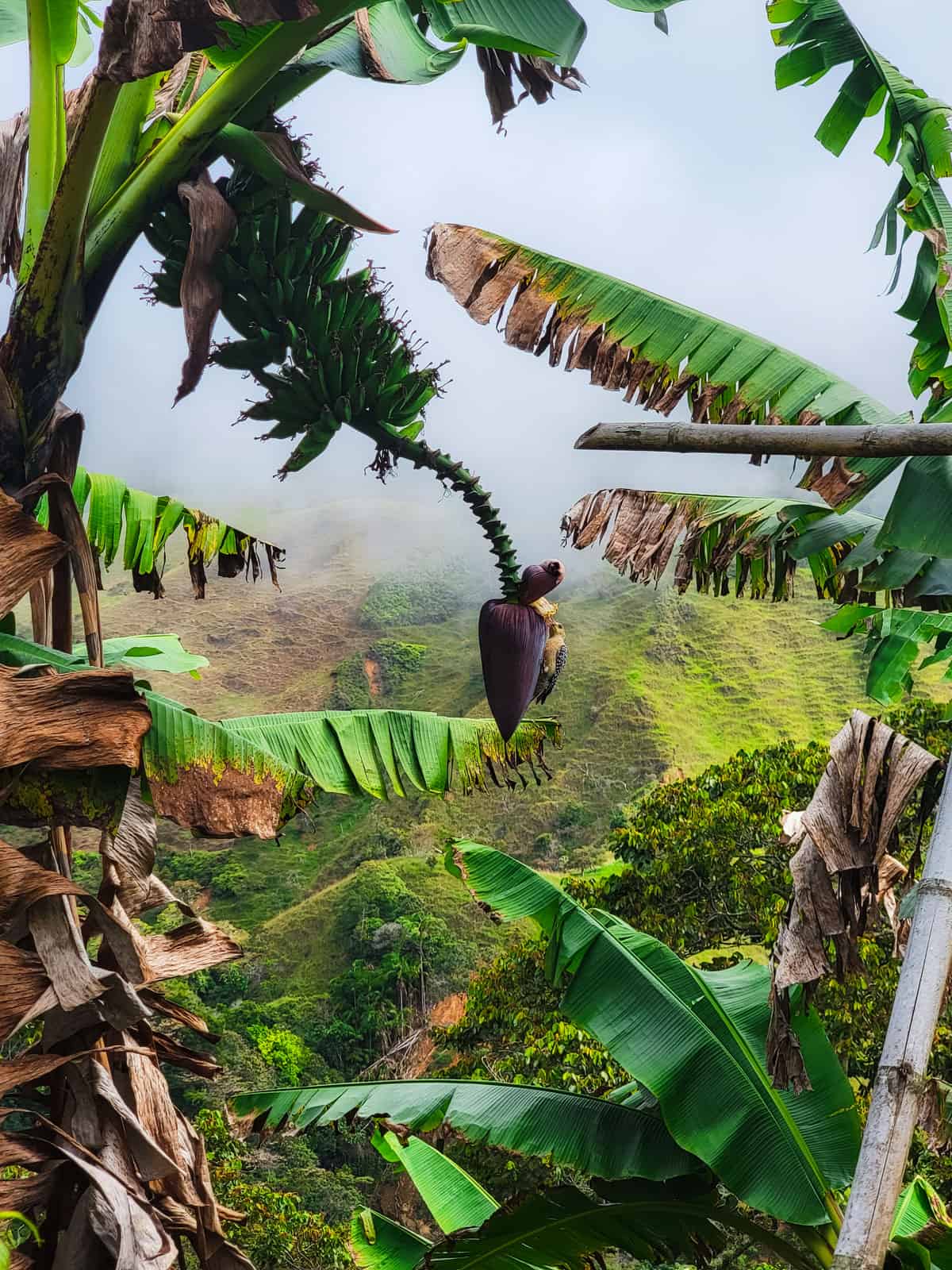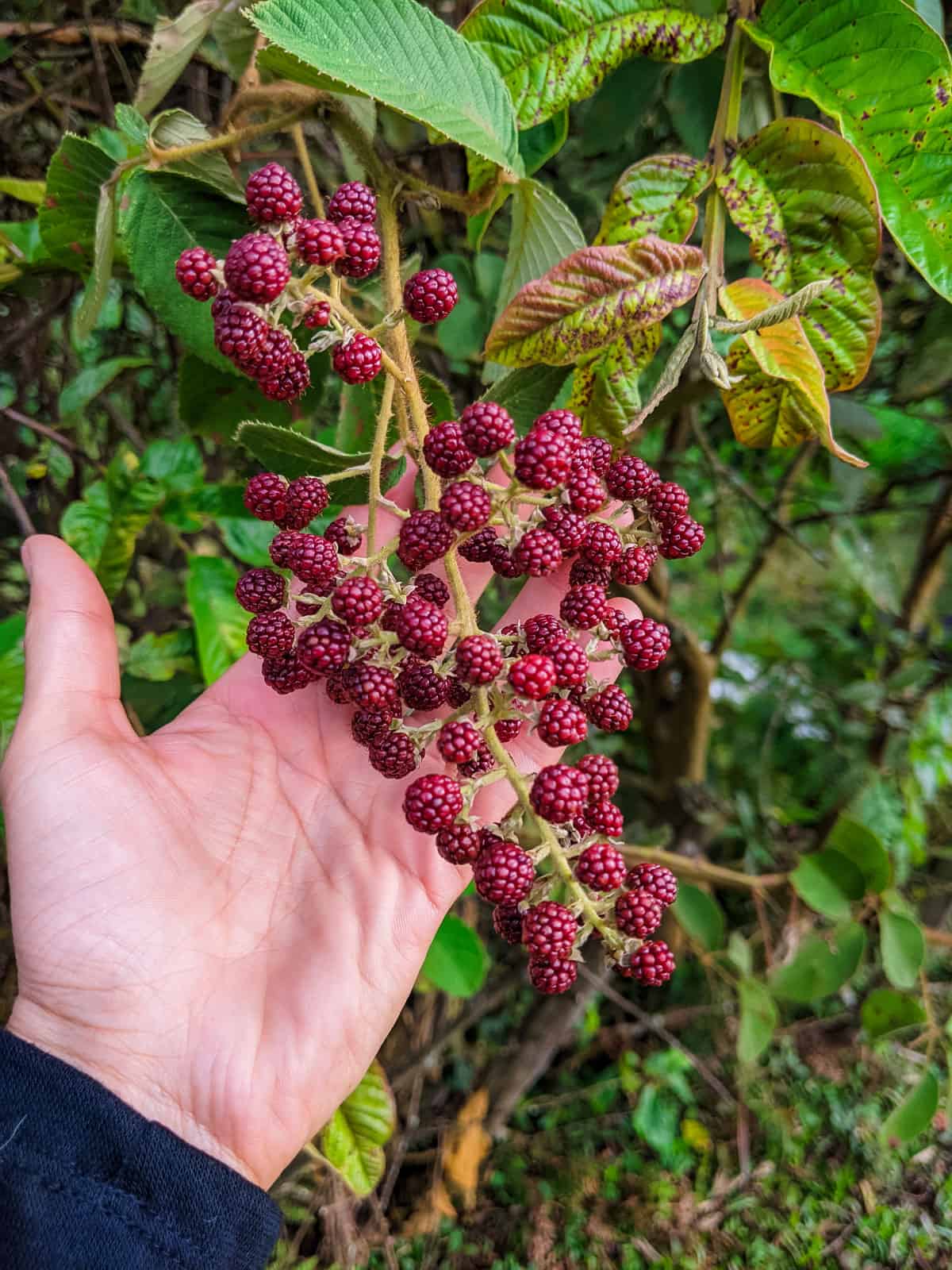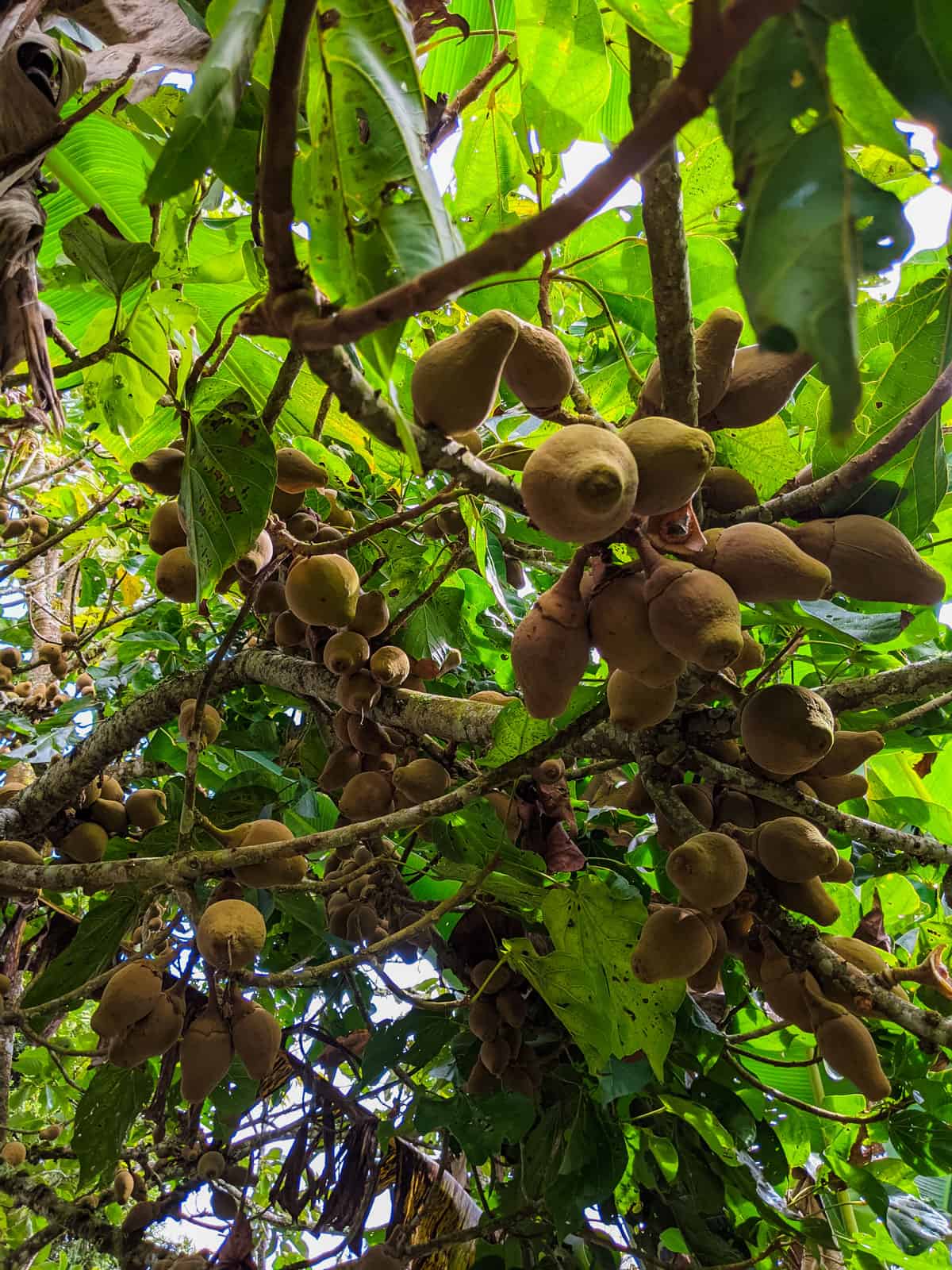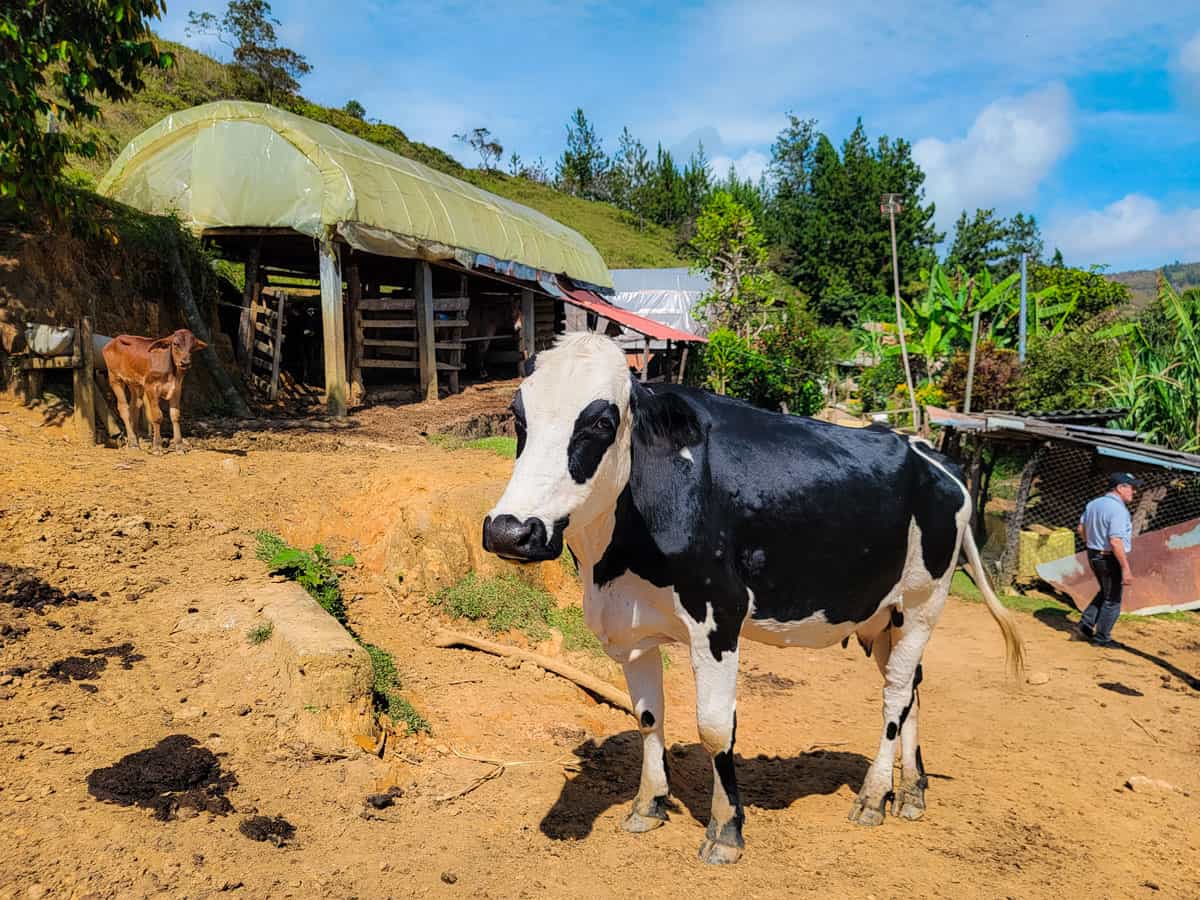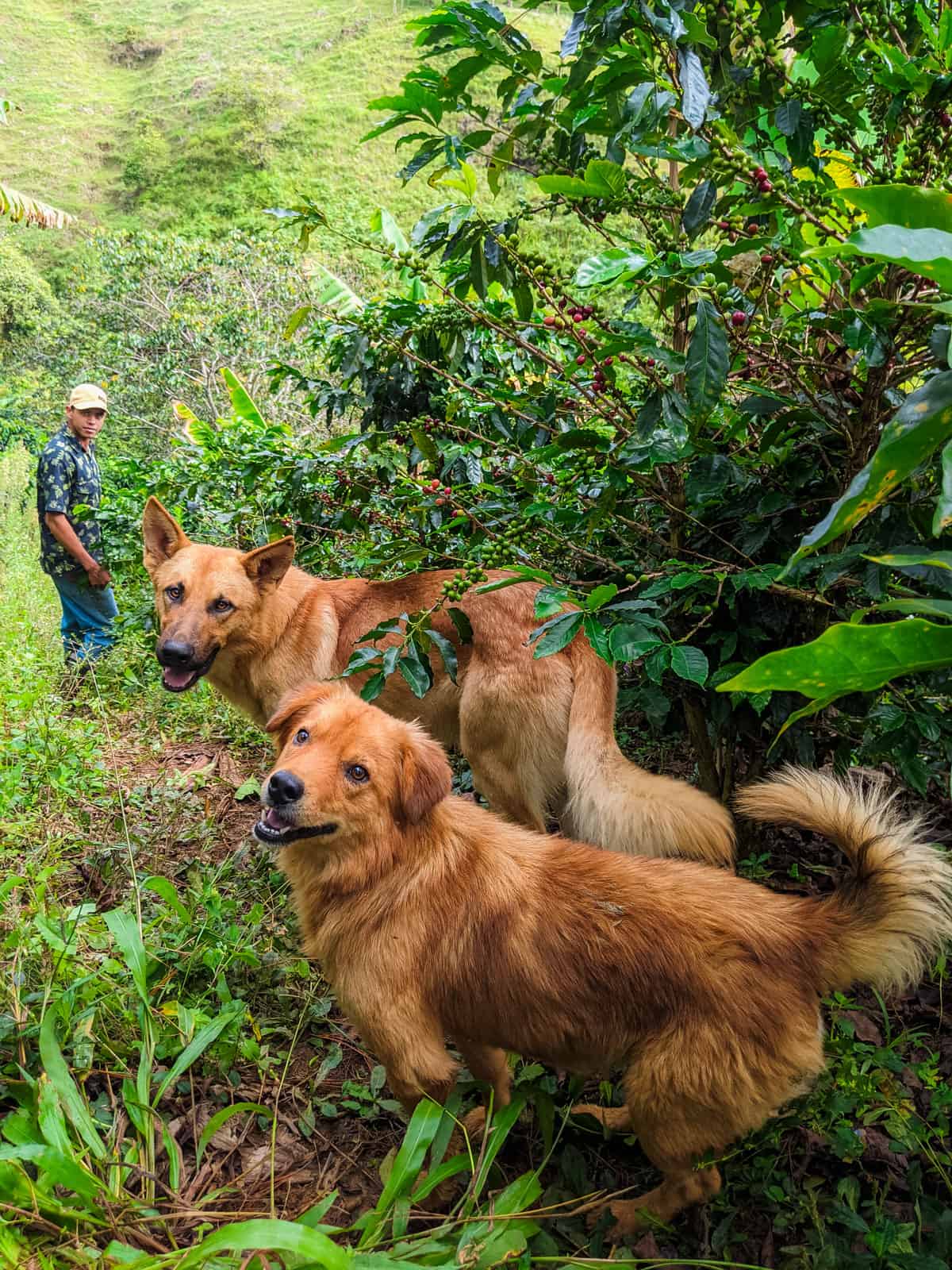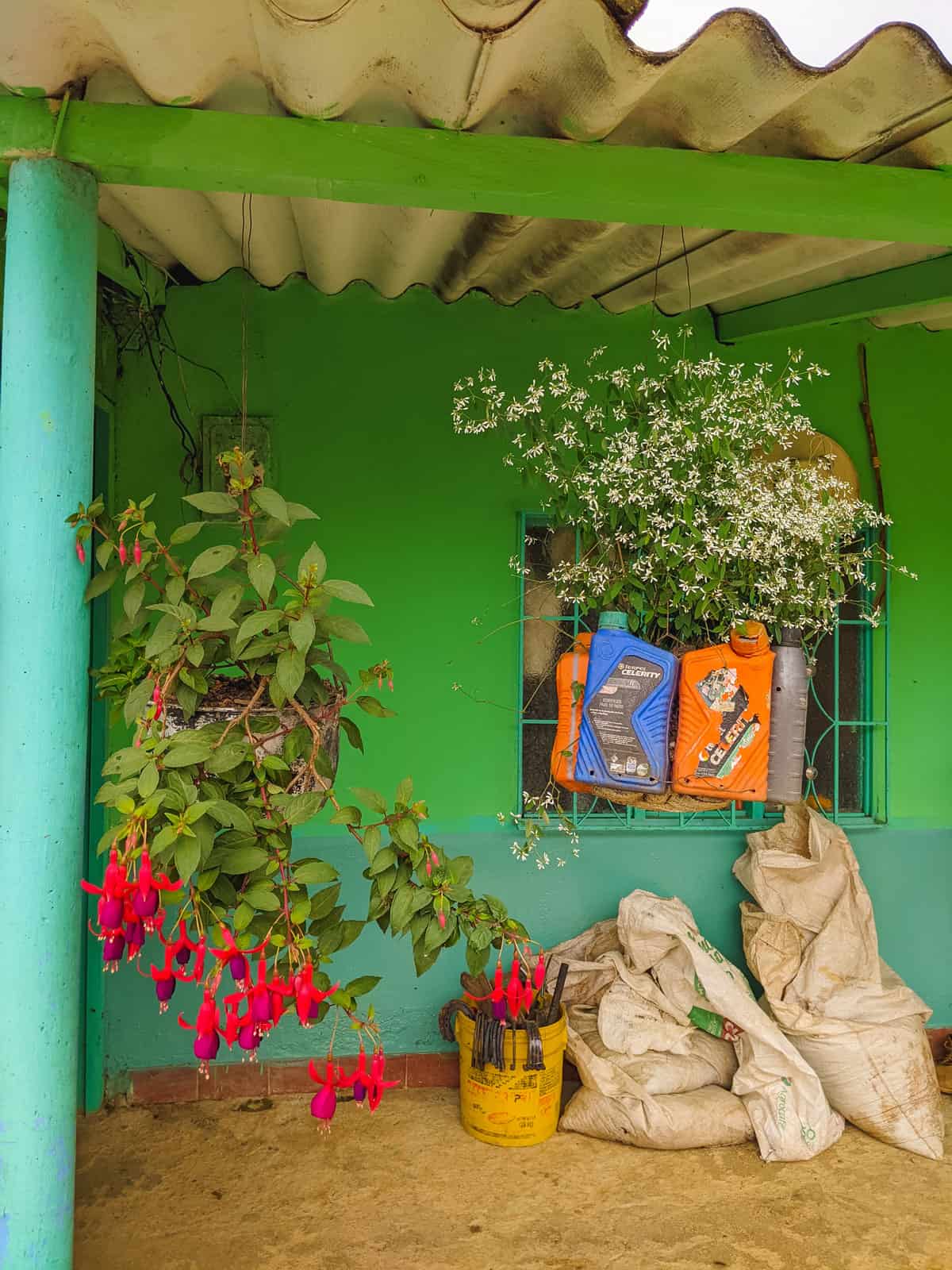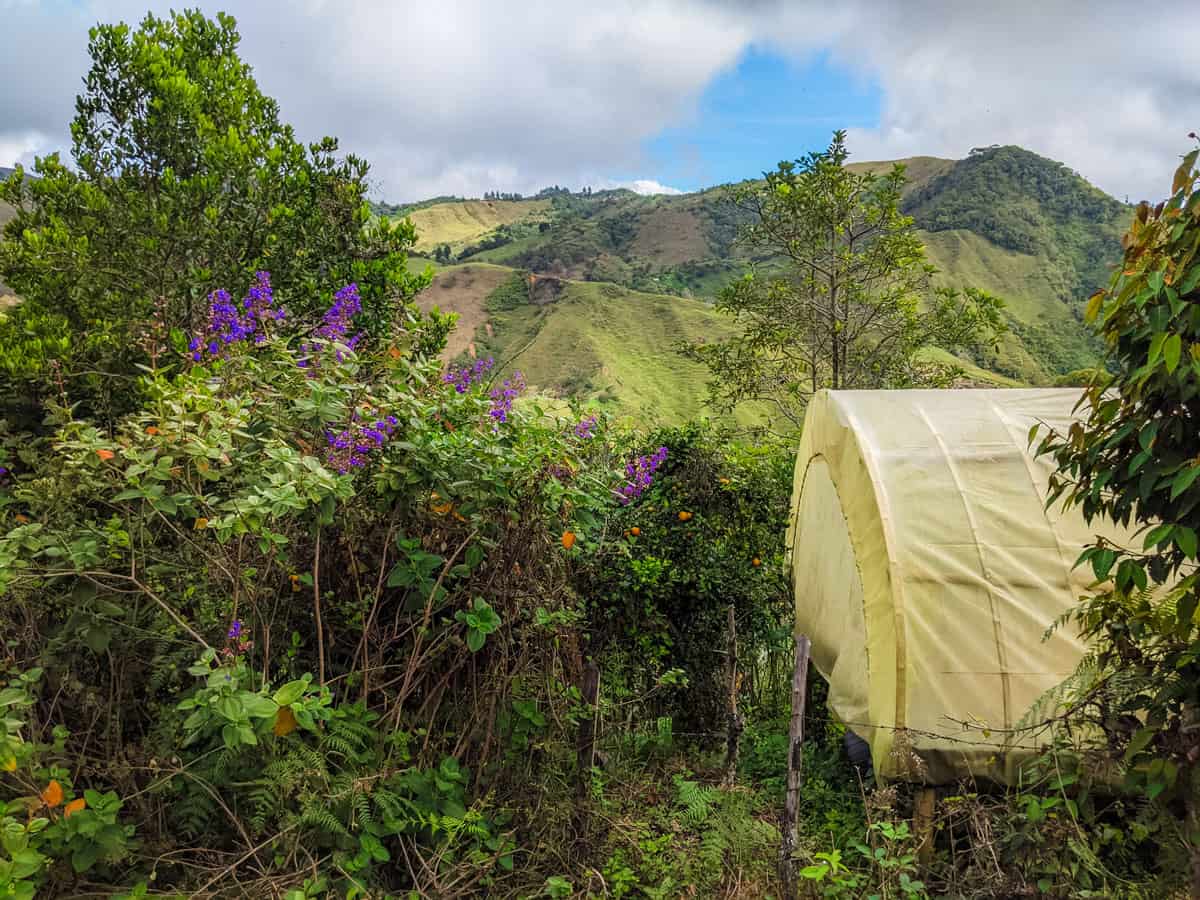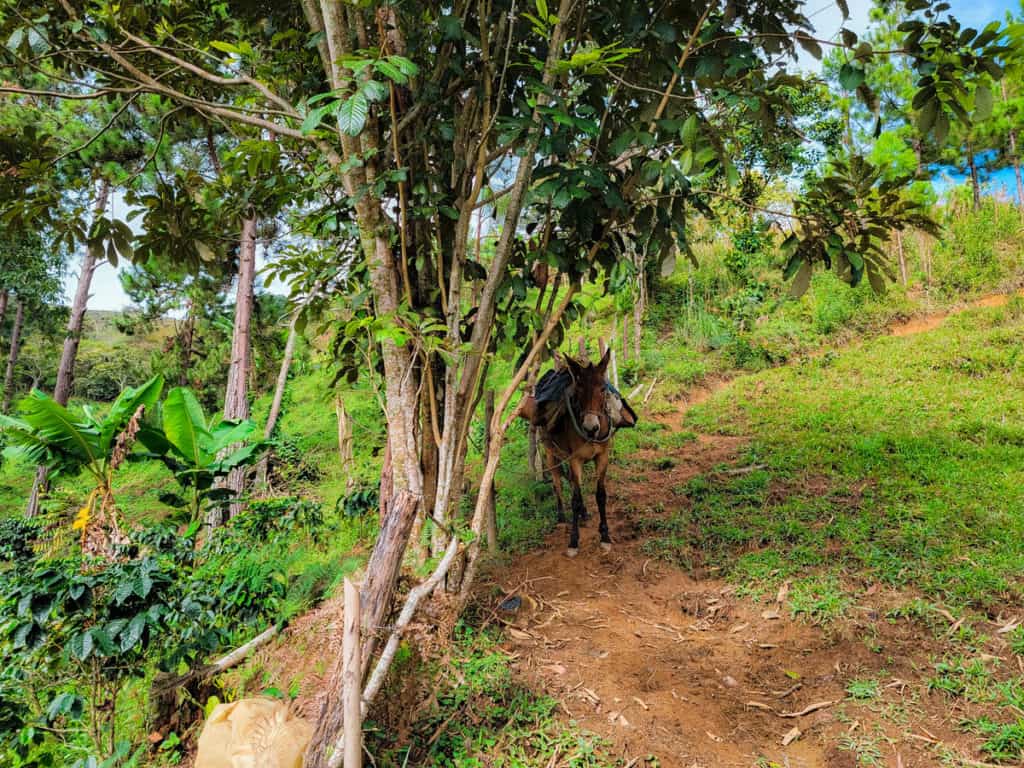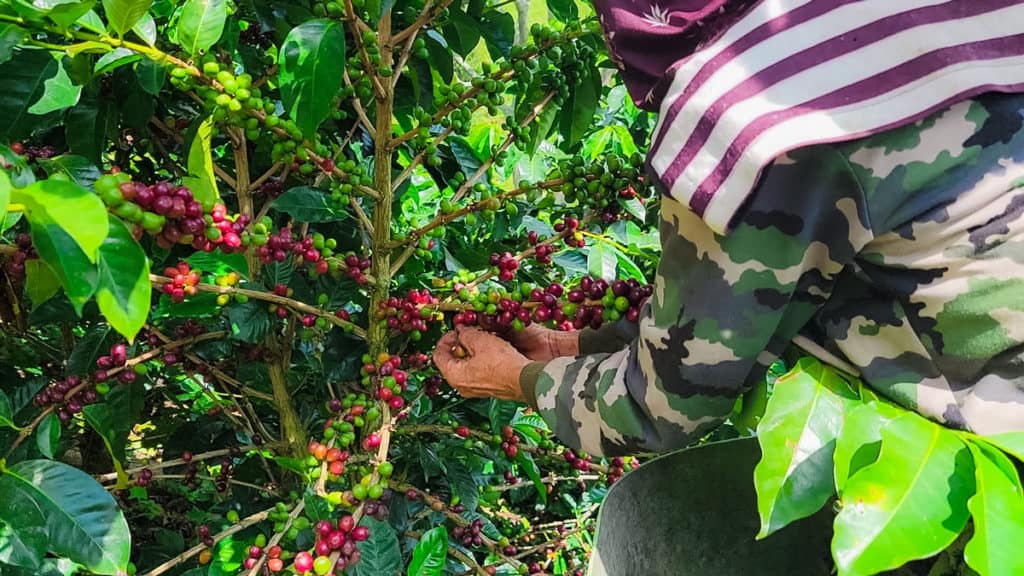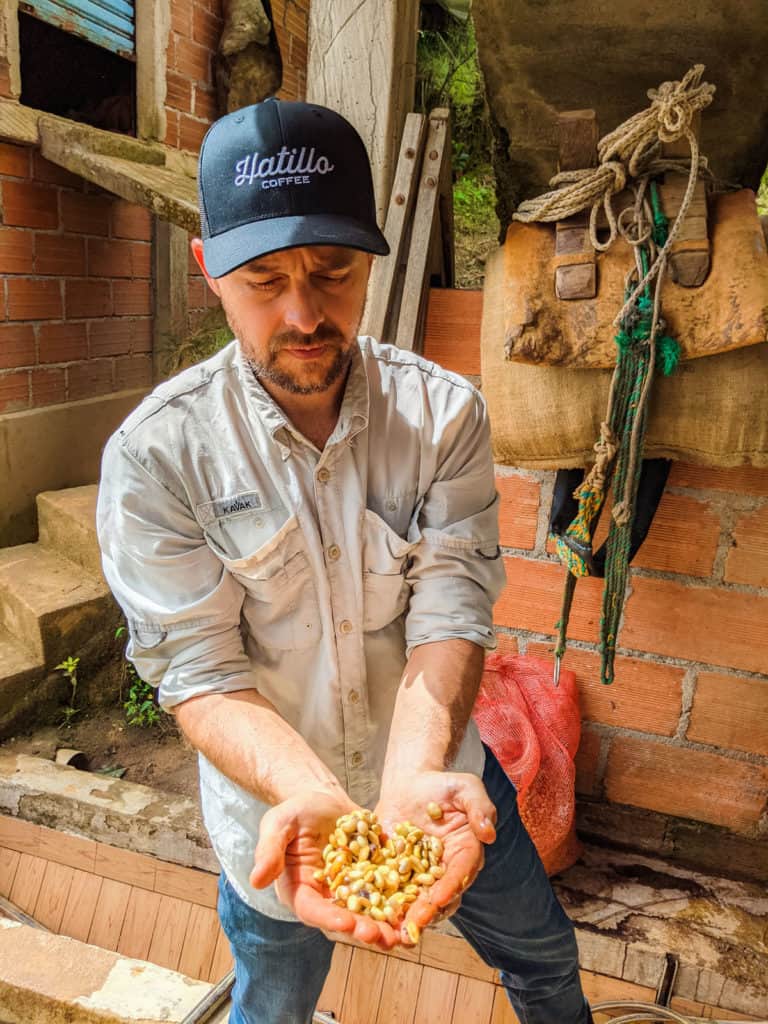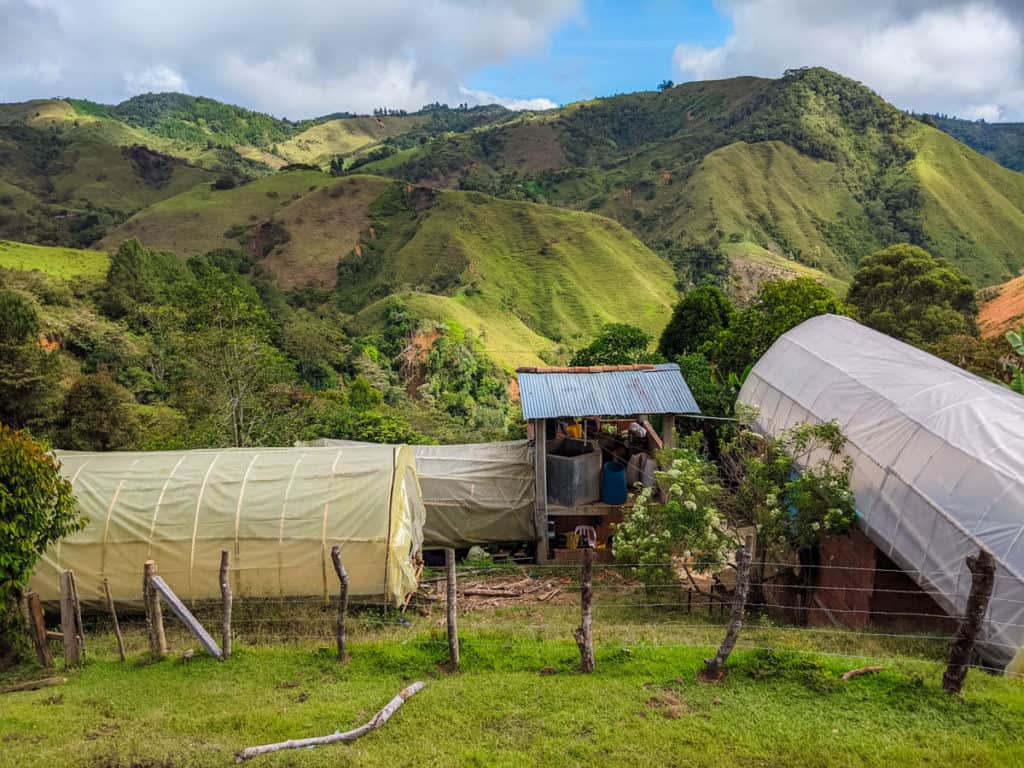
El Jardin
Nestled in the mountains far from city lights, it sits at 5,413 ft MSL (1,650 meters). Abundant water sources, diverse wildlife, and the perfect balance of sunshine and fog create ideal conditions for coffee plants to produce delicious specialty beans.
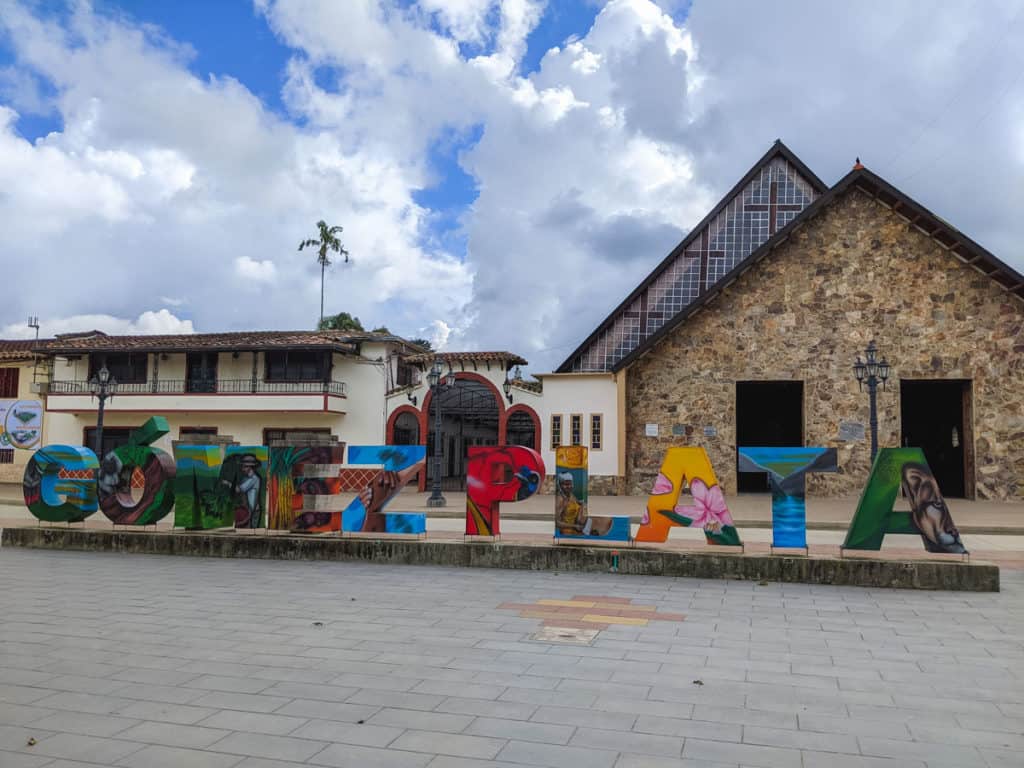
Gomez Plata
“El Jardin” is a tropical forest farm located in Gomez Plata, Antioquia – Colombia. Gomez Plata is a picturesque town surrounded by breathtaking natural beauty. The town exudes a charming, traditional atmosphere, featuring colorful colonial-style architecture and narrow streets lined with quaint houses. Gomez Plata is known for its warm and welcoming community, where locals preserve their cultural traditions and heritage.
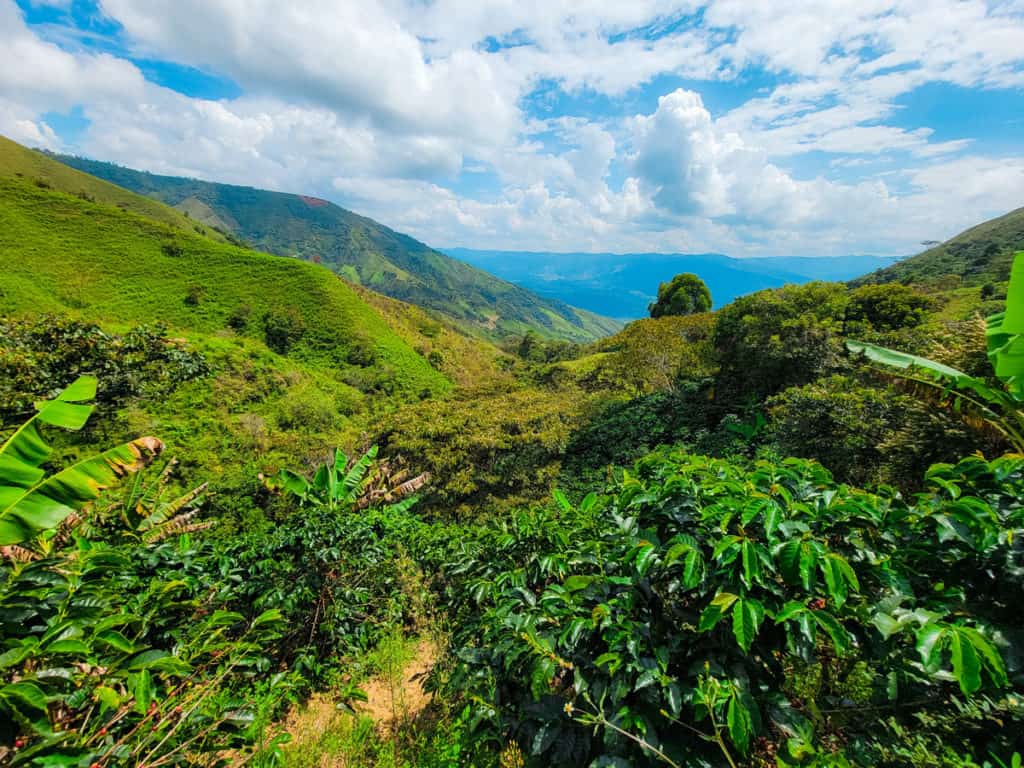
Coffee with a View
A spectacular view from “El Jardin” farm
